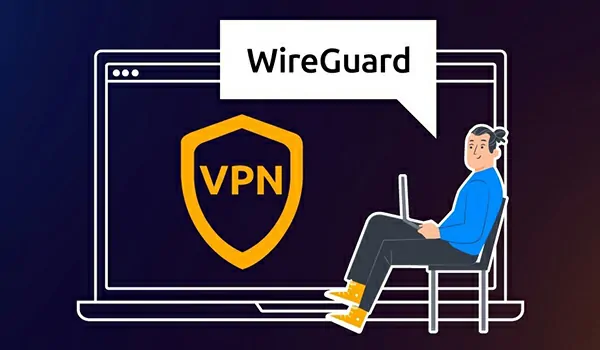WireGuard® is a ground-breaking VPN solution that revolutionizes speed, simplicity, and security. WireGuard is meant to surpass popular VPN protocols such as IPsec and OpenVPN, and it is suitable for a wide range of applications, from embedded devices to powerful supercomputers. This paper goes into WireGuard’s core features, technological foundations, and use cases, giving a detailed guide to understanding and using this cutting-edge VPN solution.
What is WireGuard?

WireGuard is a lightweight, high-performance VPN protocol that uses powerful cryptography to provide safe and fast connections. Originally designed for the Linux kernel, it has been evolved to include Windows, macOS, BSD, iOS, and Android. With its emphasis on simplicity and a small attack surface, WireGuard has become a popular solution for people and businesses that value privacy and performance.
Key Features of WireGuard
1. Simple and Easy to Use.
- Simple configuration: WireGuard, like SSH, relies on exchanging public keys.
- Transparent Handling: Automatically manages connections, states, and daemons.
- Roaming Support: Allows for seamless transitions between IP addresses, ensuring ongoing connectivity.
2. Cryptography Excellence
- WireGuard uses cutting-edge encryption techniques, which include:
- Noise Protocol Framework
- Curve25519 and Chacha20
- BLAKE 2 and Poly1305
- These options provide strong encryption and security, supported by peer-reviewed standards.
3. Minimal attack surface.
- WireGuard’s codebase is compact, making it simple to audit and maintain.
- Enhanced Security: When compared to protocols such as OpenVPN or IPsec, the reduced complexity eliminates possible weaknesses.
4. High performance.
Kernel-Level Operations: Integrated directly into the Linux kernel to speed up data processing.
Optimized for speed: From smartphones to backbone routers.
5. Ready for Containers
WireGuard supports containerized apps, which provide safe network separation via Docker and other platforms.
How WireGuard Works

Conceptual Overview
WireGuard wraps IP packets over UDP. By defining private and public keys, users may create encrypted tunnels for safe data sharing. Unlike standard VPNs, it avoids complex setups, concentrating instead on simplicity and performance.
Cryptokey Routing
The Cryptokey Routing Table, which links public keys to authorized IP addresses, is fundamental to WireGuard’s operation. This method simplifies
Authentication: Ensures packets come from certified peers.
Routing: Matches destination IP addresses with relevant peers.
Built-in Roaming
WireGuard automatically changes peer endpoints to ensure smooth communication even when devices change networks or IP addresses.
Installation and Quick Start
Installing WireGuard
WireGuard is widely supported and straightforward to install:
- Linux: Available through kernel modules and package managers.
- Installers for Windows and macOS may be downloaded from the official WireGuard website.
- Mobile apps are accessible on both iOS and Android platforms.
QuickStart Guide
- Generate Keys: Generate private and public keys for the interface and peers.
- Configure Interface: Define the WireGuard interface (e.g., wg0) with the appropriate keys.
- Add Peers: Configure the authorized IP addresses and communication endpoints.
- Activate: Start the UI to create a VPN tunnel.
Advanced Technical Insights
Simple Network Interface
WireGuard functions as a network interface (e.g., wg0) that may be set using ordinary networking tools such as ifconfig or ip-route. This interface wraps and encrypts IP packets to ensure safe transmission.
Protocol and Cryptography
The WireGuard protocol is specified in a thorough whitepaper, ensuring:
- Transparency means providing clear explanations for design decisions and cryptography choices.
- A thorough review involves rigorous academic and practical assessment.
Applications and Use Cases
For individuals.
- Privacy protection includes secure surfing and data sharing over public Wi-Fi.
- Streaming Access: Avoid geo-restrictions for uninterrupted content viewing.
For businesses.
- distant Work: Set up secure VPN connections for distant employees.
- Cloud Security: Secure sensitive data in cloud settings.
For developers.
- Containerized Applications: WireGuard allows you to securely separate container networks.
- Cross-Platform Deployment: Take advantage of WireGuard’s adaptability in a variety of contexts.
Conclusion
WireGuard provides a paradigm leap in VPN technology, combining simplicity, speed, and cutting-edge cryptography. Whether for personal usage, corporate solutions, or development settings, it provides unparalleled performance and security. Its small attack surface, simplicity of usage, and strong cryptographic standards make it an attractive option for anybody looking for a dependable VPN service.
Embrace the future of safe networking with WireGuard. Start your trip now!



